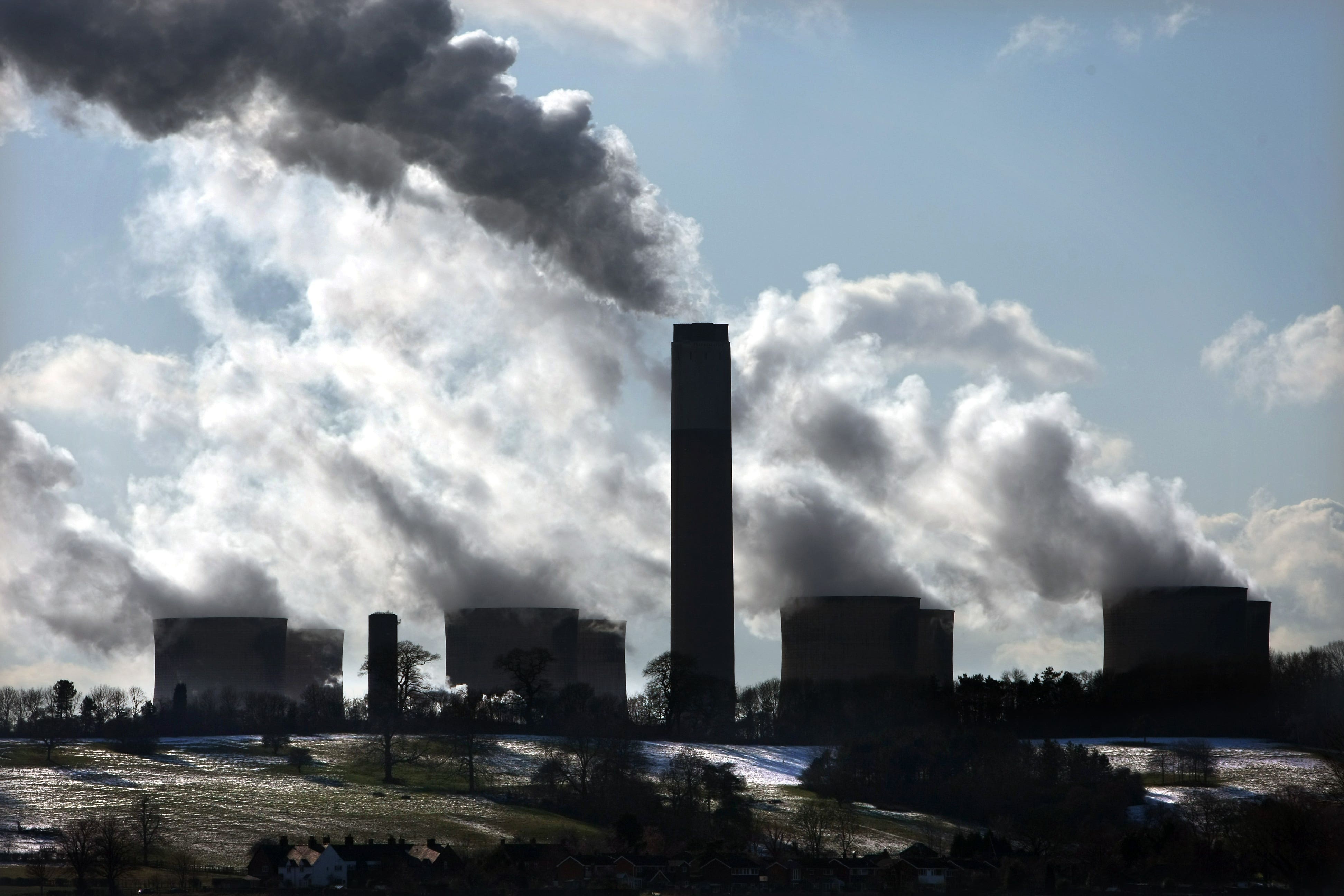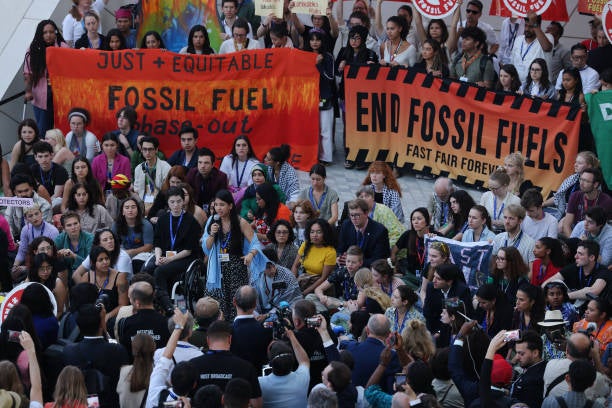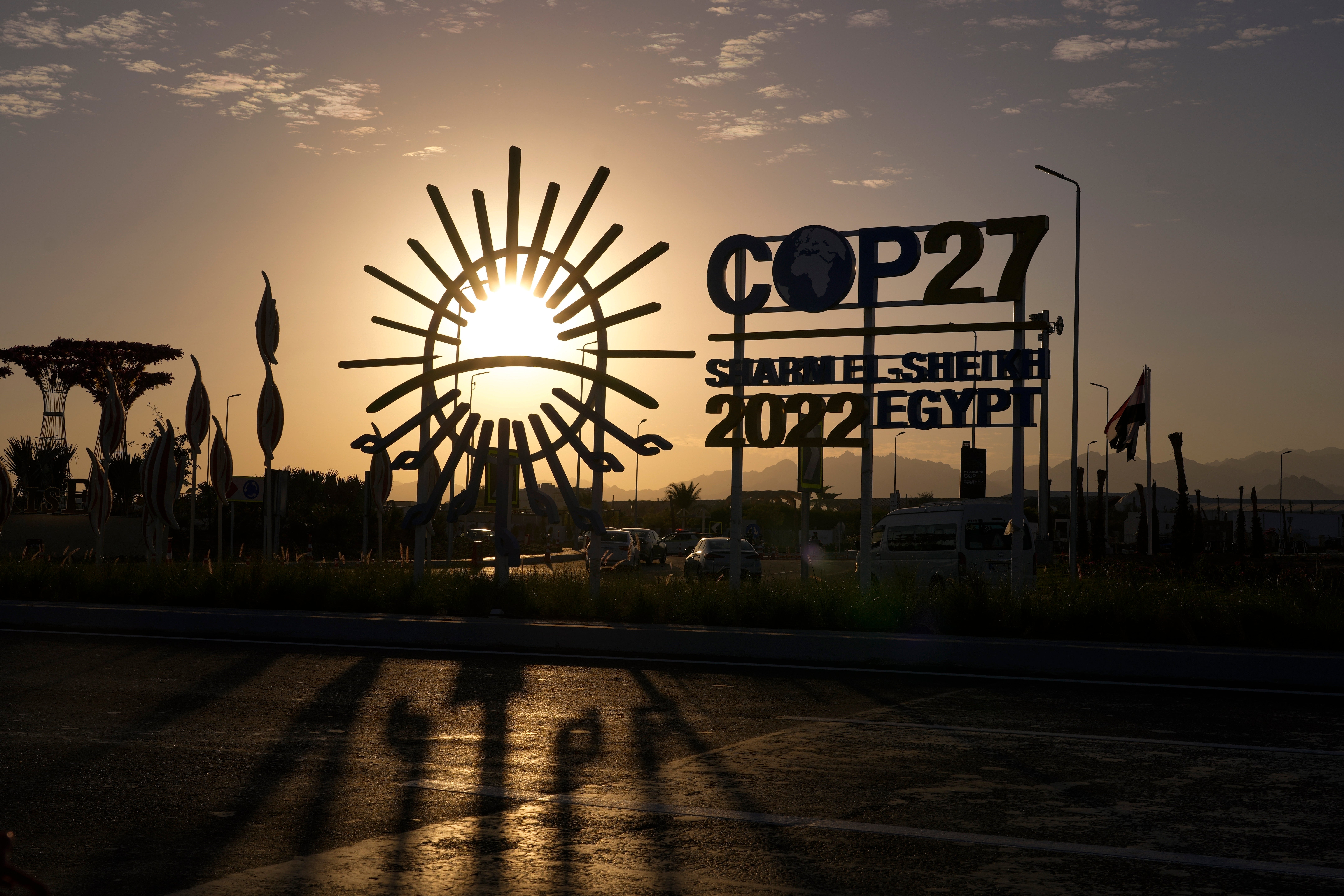Cop28 climate conference in numbers as historic deal struck to transition away from fossil fuels
The UK has a legally-binding commitment to cut emissions by 100 per cent by 2050 - the net zero target
Your support helps us to tell the story
From reproductive rights to climate change to Big Tech, The Independent is on the ground when the story is developing. Whether it's investigating the financials of Elon Musk's pro-Trump PAC or producing our latest documentary, 'The A Word', which shines a light on the American women fighting for reproductive rights, we know how important it is to parse out the facts from the messaging.
At such a critical moment in US history, we need reporters on the ground. Your donation allows us to keep sending journalists to speak to both sides of the story.
The Independent is trusted by Americans across the entire political spectrum. And unlike many other quality news outlets, we choose not to lock Americans out of our reporting and analysis with paywalls. We believe quality journalism should be available to everyone, paid for by those who can afford it.
Your support makes all the difference.The Cop28 summit has approved a deal that will push national governments to “transition away” from fossil fuels for the first time, in an attempt to mitigate the impacts of climate change.
After weeks of tense negotiations in the host country United Arab Emirates, the agreement was confirmed on Wednesday by Cop28 president Sultan Al Jaber, who said the delegates had gone down “a long road in a short amount of time”.
As well as the phasing out fossil fuels, part of the agreement involves the tripling of renewable energy by 2030.

Small island states most threatened by rising sea levels do not think the agreement goes far enough, but expressed some optimism the deal could lead to stronger action in the future.
Mohamed Adow, director of Power Shift Africa, said: “For the first time in three decades of climate negotiations the words fossil fuels have made it into a Cop outcome.
“We are finally naming the elephant in the room. The genie is never going back into the bottle and future Cops will only turn the screws even more on dirty energy.”
Facts and Figures
Who are the worst polluters? China, the United States, India, Russia and Japan were the top five biggest emitters of carbon dioxide (CO₂) emissions in 2022.
Who is the global renewable energy leader? China has nearly half of the world’s operating wind and solar capacity.
Which country uses the highest share domestically of renewable energy? Iceland, at 86.87 per cent.
How much would renewables capacity have to grow to reach Cop28’s new target? 17 per cent annually.
How many people live in areas highly susceptible to climate change? Around 3.6 billion people.
How many deaths will climate change cause? Between 2030 and 2050, climate change is expected to cause approximately 250 000 additional deaths per year, from things such as malnutrition and malaria, say the WHO.
How much is climate change costing the economy? Between £1.7 trillion and £2.6 trillion a year.
How much investment is needed to limit global warming to 1.5C? £12 trillion globally will need to be spent on energy effieciency and conservation measures, as reported by Politico.
How much does fossil fuel production have to decline? By roughly 6 per cent per year between 2020 and 2030.
How much warmer is the earth now than in the 1880s? 1.1C

What is in the Cop28 deal?
The most headline-grabbing commitment - never before been agreed - is for countries to reduce dependance on fossil fuels. The deal calls for “transitioning away from fossil fuels in energy systems, in a just, orderly and equitable manner... to achieve net zero by 2050 in keeping with the science.”
It also calls for a tripling of renewable energy capacity globally by 2030, speeding up efforts to reduce coal use, and accelerating technologies such as carbon capture and storage that can clean up hard-to-decarbonize industries.
Now that the deal is struck, countries are responsible for delivering through national policies and investments.
What are the UK’s current climate change pledges?
Britain has a legally-binding commitment through the Climate Change Act 2008 to cut our emissions as a country by 100 per cent by 2050, from 1990 levels.
This is commonly referred to as the net zero target, which means balancing the amount of greenhouse gases a country produces with the amount it reduces.
Alongside that there are a number of policy initiatives to try and get us to that target. Former prime minister Boris Johnson pledged that all the UK’s electricity will come from clean sources by 2035.
In addition to that the government plans to increase off-shore wind capacity fivefold to 50GW by 2030, expand nuclear power and increase solar power five-fold by 2035.
However, prime minister Rishi Sunak recently attracted criticism from environmental campaigners and scientists for “watering down” the UK’s net zero pledges and granting new oil and gas licences in the North Sea.

How much oil and gas does the UK use and how reliant are we on fossil fuels?
In short, a lot. Britain is still very reliant on fossil fuels. We consumed around 61 million tonnes of oil and 77bn cubic metres of gas last year.
Our consumption of gas so far this year is 9 per cent lower than last year, but the amount of oil we have used is so far 4 per cent higher, according to Offshore Energies UK.
The UK remains a net importer of gas and oil, with a significant proportion coming from Norway and further imports from Canada, the United States and Algeria.

Britain does still have oil and gas from the North Sea, but the reserves peaked in the late 1990s and have been on a decline ever since. Imports of oil or gas from Russia were banned by the UK government due to Vladimir Putin’s invasion of Ukraine.
Overall our oil and gas usage accounts for around 75 per cent of the country’s total energy. It is still a high proportion but is down from 87.2 per cent in 2012 as the country has embraced more renewable forms of energy.
A significant reason for the high oil and gas used is that the vast majority of the 35 million cars on the road in the UK run off petrol or gas.
According to the ONS the transport sector accounts for almost three-quarters of demand for petrol and overall fuel use for cars increased by 2.5 per cent in 2022.
In addition to that, the way Britons heat their homes and get hot water for things like showers and baths is still overwhelmingly through gas boilers, rather than through heat pumps which are considered more sustainable.

What does the UK need to do?
As with any agreement, the real focus now is what governments across the world, including the UK, are willing to do to put the words of Cop28 into action to reduce fossil fuel consumption and transfer to greener energies.
Professor Chris Hilson, director of the Centre for Climate and Justice at the University of Reading, said: “Language matters. So a transition away from fossil fuels is not a phasing out. But actions speak louder than words.
“What is really important now is that governments around the world take immediate policy action to implement a transition away from coal, oil and gas.
“That involves practical things like ruling out new fossil fuel developments, redirecting fossil fuel subsidies to renewables, improving EV infrastructure, insulating homes and much else besides. To paraphrase Marx, the point is not only to talk about the world but to change it.”
Ghiwa Nakat, executive director, Greenpeace Middle East & North Africa, said: “COP28 has sent an unprecedented signal to the world that the starting gun has been fired for the end of the fossil fuel era.
“We commend the efforts of the COP presidency to conclude with a final acknowledgement of the need to transition away from fossil fuels and to mobilise climate finance with more than $700million pledged to the operationalised Loss and Damage Fund.
“But communities on the frontline of the climate catastrophe need more than this. They need to see an unwavering and resolute commitment to a rapid, equitable, and well-funded phaseout of all fossil fuels – together with a comprehensive finance package for developing countries to transition to renewables and cope with escalating climate impacts. We leave Dubai knowing that hope is still alive but our mission is far from over!”

Join our commenting forum
Join thought-provoking conversations, follow other Independent readers and see their replies
Comments